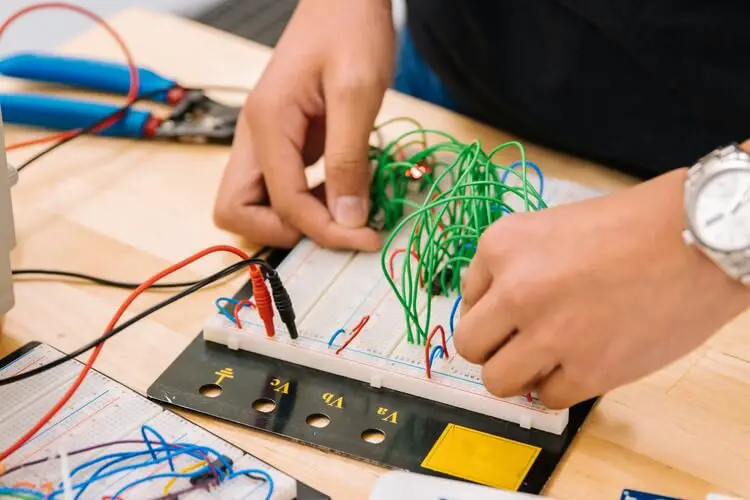Vocational education programs are pivotal in preparing individuals for careers in various technical fields, including electrical work. In these programs, understanding and prioritizing electrical safety is paramount. These programs are designed to impart practical, hands-on skills that bridge the gap between traditional academic learning and the specialized demands of the workforce. This article delves into incorporating comprehensive electrical safety training into vocational education programs.
Risk Mitigation
Electrical work inherently carries risks, and students in vocational programs are often exposed to hands-on training with electrical systems. Proper safety training equips them with the knowledge and skills to identify, assess, and mitigate potential risks. Understanding how to work with electricity safely minimizes accidents, injuries, and property damage.
Legal Compliance
Adherence to safety regulations and standards is not just a best practice but a legal requirement. Vocational education programs must ensure their curriculum aligns with local and national electrical safety regulations. Graduates who are well-versed in safety protocols contribute to a safer workplace and help organizations avoid legal ramifications.
Practical Application of Knowledge
Electrical safety training goes beyond theoretical concepts; it emphasizes the practical application of safety measures. Students learn to use personal protective equipment (PPE), implement lockout/tagout procedures, and identify potential electrical hazards. Apart from getting help with personal statements and their other assignments online, the web can also help students learn about electrical safety and other similar topics. This combination of online learning and hands-on experience is invaluable when transitioning to real-world work settings.
Creating a Safety Culture
Electrical safety training fosters a culture of safety within vocational education programs. Students learn to prioritize safety as an integral part of their work habits. This mindset extends beyond the classroom and into the workforce, contributing to safer work environments for themselves and their colleagues.
Reducing Accidents and Injuries
The hands-on nature of vocational education means that students are exposed to potentially hazardous situations. Electrical safety training significantly reduces the likelihood of accidents and injuries. Understanding how to handle equipment, troubleshoot issues, and respond to emergencies ensures a safer learning environment.
Emergency Preparedness
In an electrical emergency, quick and informed action is crucial. Safety training prepares students to respond appropriately to electrical fires, shocks, or equipment failures. This preparedness protects the individual and can prevent further damage or injury.
Technical Advancements and Innovation
As technology in the electrical field advances, so do safety protocols. Electrical fire safety training ensures students are up-to-date with the latest safety measures, equipment, and technologies. This knowledge is essential for adapting to industry changes and implementing best practices in a rapidly evolving field.
Employability and Professionalism
Employers value candidates who prioritize safety. Graduates with comprehensive electrical safety training stand out as responsible and conscientious professionals. This enhances their employability and contributes to a positive reputation for the vocational education program. Electrical safety training addresses these factors, teaching students how to recognize and manage them to maintain a safe and productive work environment.
Multidisciplinary Skills
Electrical safety training often involves collaboration with professionals from various disciplines, including occupational health and safety experts. This multidisciplinary approach broadens students’ skills, exposing them to different perspectives on safety, risk assessment, and regulatory compliance.
Lifelong Learning and Continuous Improvement
Vocational training is important, and safety standards and technologies evolve over time. Electrical safety training instils a mindset of lifelong learning and continuous improvement. Graduates are more likely to stay informed about updates in safety regulations and willingly embrace opportunities for further training throughout their careers.
Crisis Management Skills
In addition to emergency response, students learn crisis management skills. This includes making quick decisions under pressure, coordinating with team members during emergencies, and implementing crisis prevention strategies. Human factors, such as fatigue, stress, and distractions, can contribute to safety incidents.
Conflict Resolution in Safety Matters
Safety should be integrated into every stage of a project. Conflicts may arise concerning safety protocols or procedures. Safety training prepares students to navigate and resolve conflicts professionally, ensuring that safety concerns are addressed without compromising interpersonal relationships within the workplace.
Final Thoughts
Integrating electrical safety training into vocational education programs is not just a precaution but a necessity. The benefits extend beyond the classroom, positively impacting students’ safety consciousness, employability, and contributions to a safer, more productive workforce. As technology advances, the importance of electrical safety training remains a cornerstone of preparing individuals for successful and secure careers in electrical fields.







Comments are closed.